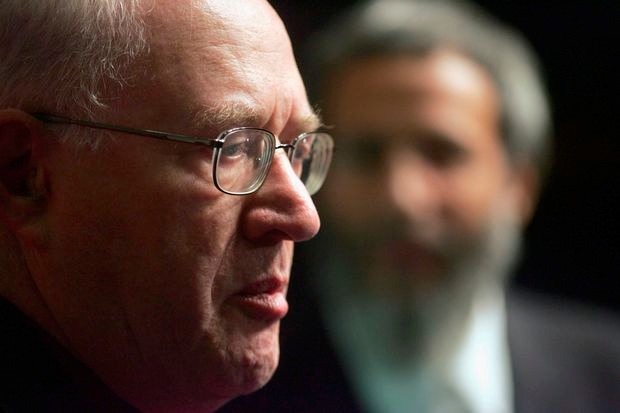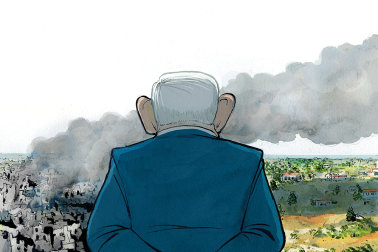Well, I think nobody really assumed that George Carey was the brightest button on the bench of bishops but the old bumbler has still managed to put a rocket into the debate on assisted suicide. By dint of a former Archbishop of Canterbury changing horses on the issue, it has wrecked the notion that there’s some sort of consensus on the Anglican side about this contentious question. Whenever anyone tries to give a Christian account of the matter they’ll be met with the riposte, ah, but that’s not what the Archbishop says.
But what gets me is the notion that it has come as a revelation to poor old George that there are potent arguments from compassion on the assisted dying side. No one who listened to the late Tony Nicklinson’s account of his constricted life, no one who listens, in fact, to a description of anyone with locked-in syndrome, can remain unmoved. But the argument isn’t that there isn’t suffering that could be curtailed by a doctor killing a terminally ill patient. It’s that the effects of the change on a great number of other people will be incalculably damaging.
And in fact, as Jenny McCartney pointed out in her piece on this issue last week, and as the former Archbishop should have acknowledged, the most poignant cases, the ones that most moved him, will not in fact be affected by the Falconer law which is in theory confined to those with six months or less to live. People with locked in syndrome, given proper care, can last longer than six months. So…where would that leave us after a Falconer victory? With an open door, waiting to be pushed open further, that’s where.
The moment the law explicitly allows doctors to engage in killing (I mean, after birth – abortion is another story), however well motivated, the relationship between doctors and patients changes, and not in a good way. The moment people at the end of their lives feel that by getting a doctor to kill them they can save their family trouble and the state money, you put an intolerable pressure on them to consider that choice. There is an altruistic streak in many of our elderly, whereby they feel they shouldn’t be a burden. With the option of assisted dying, they will be obliged to entertain a notion they should not even have to consider, that they can save other people a lot of trouble by dying. Trouble is, the potential victims of the law are silent and invisible; the proponents all over the BBC.
As for the sneery notion that this is the slippery slope argument, well yes, except that it’s not a dud bit of rhetoric, but based on solid observable evidence from those countries that have introduced assisted dying…they started to help those in intolerable pain, assumed to be at the end of their lives, and in Belgium they’ve now come, in law, for dying children, for those with dementia. Slippery slope? As seen from the bottom, not the top.
That’s the argument against assisted dying which we can all share and atheists can leave me at this point.
As for George’s argument that ‘in strictly observing the sanctity of life, the Church could not actually be sanctioning anguish and pain, the very opposite of the Christian message of hope’ it seems like dud theology. Look, the message of the cross isn’t that suffering is something that should be avoided at all costs. The Christian notion of suffering involves uniting your suffering with that of Christ on Calvary and thereby giving it a very different dimension. Christians do not, at least nowadays, wilfully take suffering on themselves – beyond a bit of fast and abstinence – but they take up their cross when it comes to them. When it comes to suffering their role is to relieve it in the sufferer, not to kill him or her and so do away with it, which is why so many hospices are former or present Christian foundations. On this one, George is wrong, and his rather cleverer, and more thoughtful, successors are right.







Comments